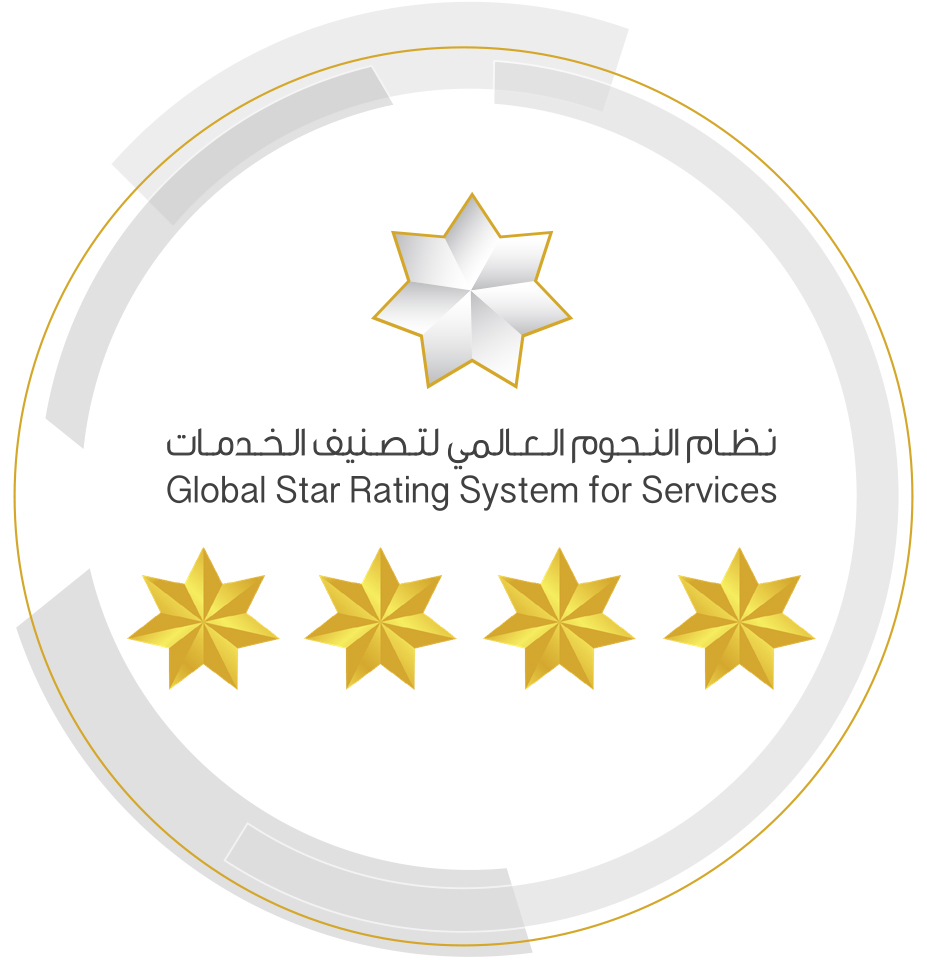| Nationality: | United Arab Emirates |
| Place & Date of Birth: | Sharjah, 31/12/1956 |
| Marital Status: | Married, have 5 dependents (3 boys and two girls) |
| Scientific Qualifications: | Bachelor of Business Administration from the United States International University in San Diego, California, in June 1979 - USA |
| Practical Experiences: |
Promoted to the Senior Director of the International Relations Department in 1998. During the period from 1979 to March 2005, I have participated in the activities of the Ministry at the local, GCC and international levels.
|
| At the Local level: |
|
| At the GCC Level: |
|
| At the Arab level: |
|
| At the International level: |
|
| Researches & Studies: |
|
Having assumed the chairmanship of the Municipal Council of Sharjah .. How do you feel about that?
According to the decree of His Highness Sheikh Dr. Sultan Al Qasimi, the member of the Federal Supreme Council and Ruler of Sharjah, I have been assigned to chair the Sharjah Municipal Council for a period of 4 years. In fact, this assignment from His Highness is an honor of which I am proud on the personal level. It is one of the biggest motivating factors that drive me – while I am in charge – to make all possible efforts to enrich the life experience for citizens and residents in the Emirate of Sharjah. In this regard, we draw from the royal directions of His Highness, which always focus on looking to the provision of services in the sense that they are provided to humankind regardless who they are.
Concerning these royal directions ... How do you see the role of the leadership in understanding the citizens` needs and dealing with them?
Due to the expansion and extension of societies, communication between the parties and the center is weakening. Moreover, the idea of municipal councils is one of the inspiring ideas through which Sharjah government has embodied its keenness to enhance communication with its citizens and learn about their problems through the councils spreading in the emirate, which number 9 municipal councils. These councils are working parallel to the service and public institutions in the emirate. Yet the thing about them is that they are established within a social framework rather than an official framework. However, they have committees and a strong structure that enables them to work flexibly as a link between citizens and these institutions to deal with any of the cases they receive. Here, the leadership realization of the importance of having these councils clearly confirms its obvious desire to make any matter related to citizens is of concern and consideration.
How these directions are reflected on the Sharjah community in particular?
His Highness's directions have always focused on caring for the family as a main component of society, including all the elements of these components – the child, woman, widow, youth and men. These directions have been obviously reflected in the decisions made by His Highness, the most prominent and recent of which is the increase in salaries for Sharjah government employees and his equality between Residents and citizens in this regard. This confirms his approach to consider the indivisible human brotherhood. In addition, the salaries of retirees have been increased, in view of the minimum requirements needed by the family after extensive study. These decisions had a great impact in spreading the atmosphere of happiness between different classes, given that their reflections will affect everyone by virtue of the economic and social activity in the emirate. Furthermore, such bold decisions bring confidence in the emirate's ability and position as one of the cities friendly to man, as the thought, approach or philosophy on which the way of life is built is mercy, cooperation, familiarity and brotherhood. They are the Islamic values of tolerance, which are provoked by our religion, Emirati indigenous traditions and customs.
So after this journey in the philosophy of life established by the leadership of the Emirate of Sharjah with its usual wisdom, we return to the beginnings where the first days of professional work and review the most prominent stations until retirement and return again to the presidency of the Sharjah Municipality ..
Describe these beginnings and what is the link between them and your work now?
It was the beginning of my journey of working in the Ministry of Labor and Social Affairs, currently known as the Ministry of Emiratisation and Human Resources, where I have worked to receive auditors in addition to other jobs that made me close to people directly and during which I have gained many experiences that helped me when moving to work in the chairmanship of the Work Permits Committee and then as a Director of the Department of International Relations at the Ministry, then representing the United Arab Emirates on the board of the International Labor Organization in Geneva, membership of the Arab Labor Organization, and finally as director-general of the Council of Labor and Social Affairs Ministers in the Gulf Cooperation Council States. Now, I have the honor of chairing the Municipal Council of Sharjah City. As for the link between the work for these entities is that the work in them aims at serving the people; a task which I have pride and honor to assume, because the greatest charity provided by a person is to be in the service of his fellow man.
What is your assessment of the UAE efforts to establish workers' rights and uphold the United Nations values with regard to their rights?
The efforts of the UAE, represented by the Ministry of Labor, have focused on securing and promoting the workers' rights through many internationally recognized practices. It has prohibited work at noon in a step that illustrates its keenness to deepen humanitarian approach in labor relations. It has also implemented a wage protection system in order to preserve the right of workers to obtain their wages when completing their duties. Moreover, it has worked to develop its electronic services in order to facilitate procedures for employers and workers. We have recently seen noble initiatives from the State government to open the door to attract scientific competencies and facilitate residency for those wishing to make investment. In general the environment of the State – by all accounts – is open, receptive and attractive for all creative minds and ideas.
Through working as the Director – General of the GCC Council of Labor and Social Affairs Ministers, What are the most important decisions that you think affected the Gulf business environment?
One of the best of these decisions approved by the leaders of the Gulf Cooperation Council from my point of view is their approval of the law for extending insurance protection for the Gulf states citizens working in any of the countries of the Council. This decision has obligated all business parties in the government and private sectors to register and participate for the Gulf citizens. This law has provided an insurance coverage for the Gulf citizen as if he was working in a town, so that he could – when the conditions of retirement are applied to him – obtain a retirement pension or compensation in the least circumstances. This system has provided the Gulf people with a broader horizon in the search for job opportunities and investing their experiences in a way that enriched the work experience in the Gulf states.
Let us return to the municipal councils .. Can they explain the composition of these councils and their mechanism of work?
The Municipal Council in the Emirate of Sharjah consists of 20 members, according to a decree for a period of 4 years. The council consists of several committees, the most important of which are the Social Services Committees, the Dispute Resolution Committee, the Land Allocation Committee, the Traffic and Tickets Committee and other committees. As is clear from the name of each committee, the service committee supervises the provision of all aspects of support to the family, including housing, jobs or salaries after communicating with the relevant and competent authorities. The Dispute Resolution Committee resolves the pending problems between the competing claimants (landlords, consultants ... etc.) if some problems arise before resorting to the judicial authorities. The Land Allocation Committee studies the cases applied for a house or land. The Traffic and Violations Committee also examine complaints related to the giving of tickets by the competent authorities and the submission of complaints about them. Other committees are work in the same manner.
Throughout your professional experience ... What advice would you like to give in order to ensure a stable and stimulating work environment for all employees?
From my modest point of view, I see that the treatment of the employee on the basis of human brotherhood is the most important factor that affects the employee's productivity and motivate him to make and give more efforts which he cannot provide if he is not dealt with in a manner that respects his humanity.
What do you advise your brothers who are going to retire?
I say that retirement is required to be for a purpose better than retirement, because sometimes people find out, after retirement, that they need to work again and then they conduct a painstaking search for a job while they were already having a job.
A final word .. What does the Emirate of Sharjah represent for you?
Sharjah is my first home, a cradle of childhood and an incubator of beautiful memories. Every day my passion and love for Sharjah increase. Sharjah, as the cultural capital of the UAE, has affected our lives and our society with cultural diversity which has strengthened our sense of security, safety, brotherhood and love in an interconnected society that preserves Emirati indigenous values, customs and identity.
Did you find this content useful?
You can help us improve by providing your feedback about your experience.







